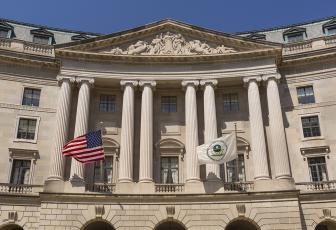AFPM recently voiced its disappointment at the decision by the U.S. Supreme Court not to hear ExxonMobil’s challenge to the New Hampshire Supreme Court’s decision to uphold a $236 million judgment against the company’s use of Methyl Tertiary Butyl Ether (MTBE) in the state’s gasoline supply in the 1990s.
The case has a long and unhappy history. After the Clean Air Act mandated companies to use an oxygenate in their gasoline supplies, ExxonMobil and others used the EPA-approved MTBE as it was the only viable option. Fast forward to 2013, and a New Hampshire jury awarded the state $236 million in damages after MTBE groundwater contamination in the state.
A 2015 appeal by ExxonMobil to the New Hampshire Supreme Court was unsuccessful, as was a subsequent appeal to the U.S. Supreme Court this year. In doing so, a number of questions remain unanswered – and some serious concerns have yet to be assuaged.
To begin, the New Hampshire court’s decision unfairly penalized a company that had virtually no control over retailers’ gasoline infrastructure. Groundwater contamination from gasoline spills wasn’t caused by ExxonMobil, but the company will be forced to pay the state more than $300 million (after adding in the interest) for one very apparent reason – it has the deepest pockets.
It also sets a bad precedent for American industry at large by first inviting more spurious legal action against companies in compliance with federal laws and regulations and, second, by ignoring dubious legal tools such as statistical extrapolation to determine liability and damages. Furthermore, MTBE was an EPA-approved additive used in order to comply with federal law, a fact that should protect refineries from any punitive state lawsuit.
Finally, a disconcerting aspect to the case is the fact that New Hampshire hasn’t committed to spending all of the money on addressing MTBE contaminated groundwater, as the jury was promised it would be.
This decision should be a wakeup call to any industry doing business in New Hampshire.
Topics


